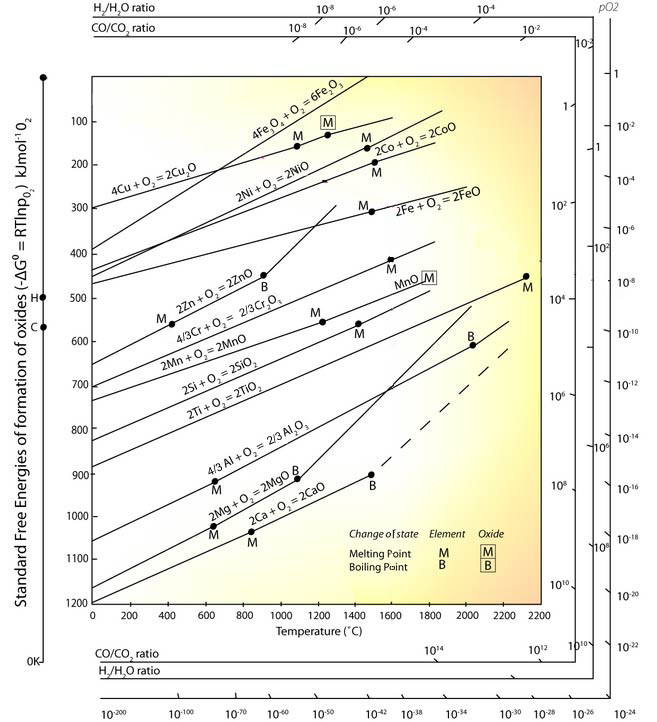I recently came across this question in a book.
Among the metals $\ce{Cr}$, $\ce{Fe}$, $\ce{Mn}$, $\ce{Ti}$, $\ce{Ba}$ and $\ce{Mg}$, the one that cannot be obtained by reduction of its metal oxide by aluminum is:-
(a) $\ce{Cr}$
(b) $\ce{Fe}$
(c) $\ce{Mn}$
(d) $\ce{Ba}$
(e) $\ce{Mg}$
So, one method to answer this question is by Ellingham Diagram and to remember the values of $\Delta G^0$(Gibbs free energy change) for oxidation of each metal into its oxide and it's variation with temperature.

So, we can see that $\Delta G^0$ for oxidation of $\ce{Al}$ is much lower than other metals except $\ce{Mg}$ at lower temperatures. Thus, $\ce{Al}$ can reduce other metals except $\ce{Mg}$ at lower temperatures.
Thus, the answer is (e) $\ce{Mg}$.
So, this was the answer based on the experimental data for metals.
Couldn't we determine this answer theoretically as we can't remember all these data?
